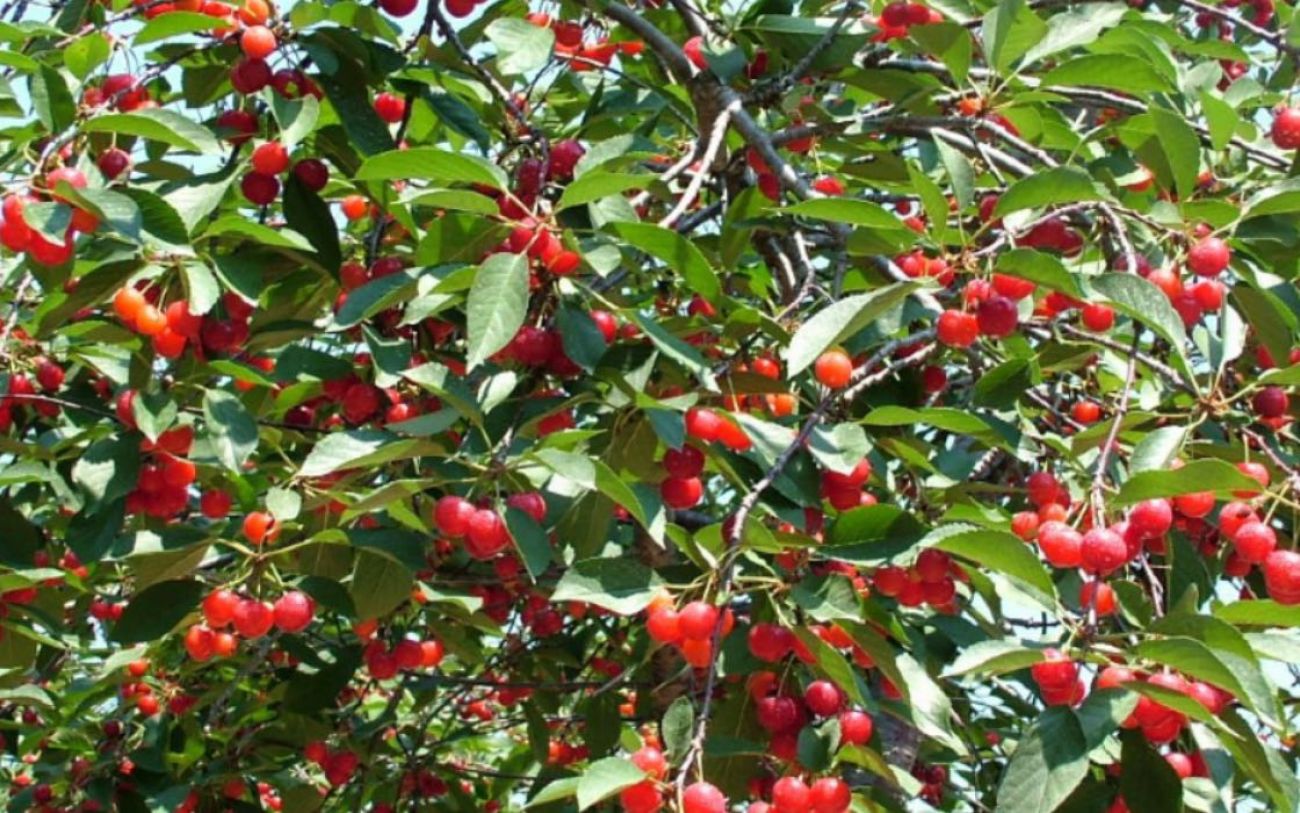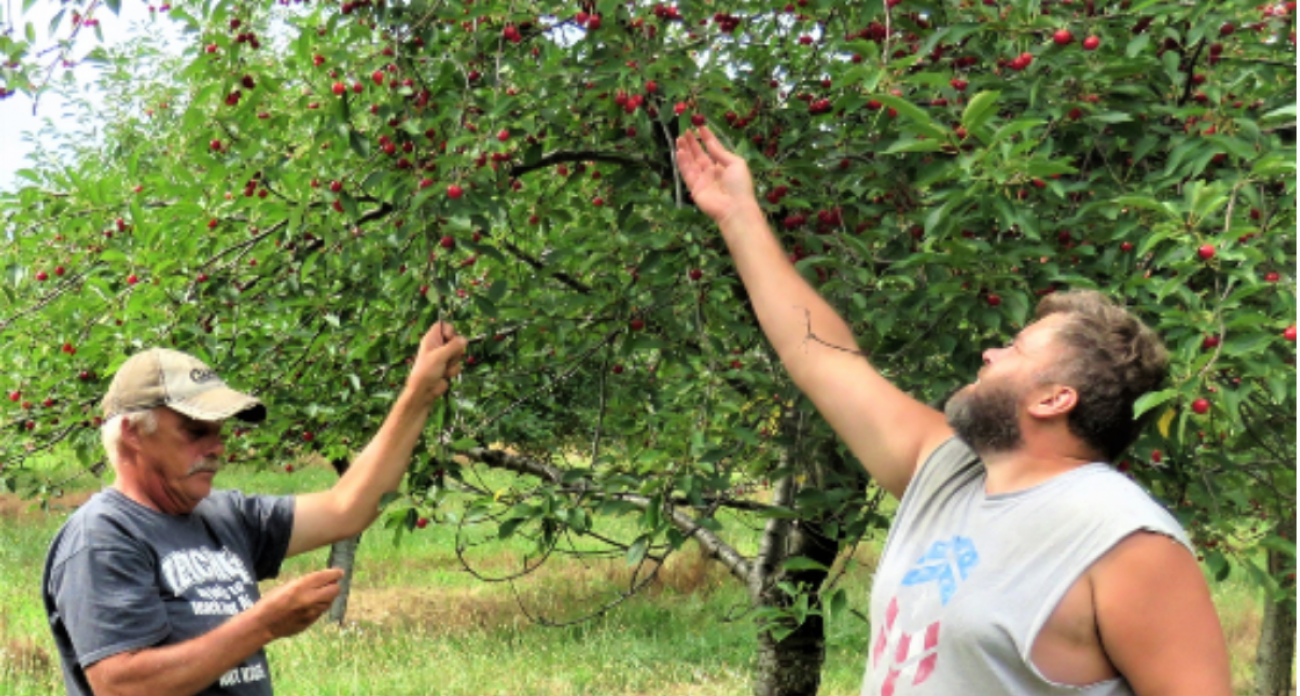Why Michigan cherry industry lost trade fight with Turkey, and its Plan B

July 20, 2021: Michigan’s tart cherry growers blame weather for yet another low harvest
A federal commission’s tough words left no doubt why the Michigan tart cherry industry’s efforts to impose import duties on Turkish imports fell flat.
In a report posted on a federal website, the U.S. International Trade Commission concluded that U.S. tart cherry producers were “not materially injured” by Turkish imports. The report found that Turkish cherries “did not enter the U.S. market in significant quantities (and) did not take significant market share from the domestic industry.”
The unanimous ruling by the nonpartisan, independent federal agency, shocked Michigan’s struggling tart cherry industry, which grows nearly three-fourths of the nation’s supply. Its ruling was announced in mid-January, but the reasoning for its decision was withheld until the report was quietly released two weeks later.
In September, the U.S. Department of Commerce ruled in favor of a petition by the Dried Tart Cherry Trade Committee, representing four Michigan and one Utah tart cherry processor, and required that Turkish exporters begin escrowing huge amounts of cash to cover anticipated duties.
More articles on Michigan's cherry industry:
The domestic trade group argued the government of Turkey illegally subsidized the Turkish cherry industry, allowing its growers to sell the dried fruit in the U.S. below market prices.
But the ITC flatly rejected that conclusion, writing that information it reviewed “supports the finding that (Turkish) imports generally were not sold at lower prices than the domestic like product.”
Related article and slideshow:
The ITC acknowledged what Bridge Magazine has previously reported: that the U.S. tart cherry industry, based largely around Traverse City, has seen sharp financial setbacks in recent years. Net sales declined steadily from $87.6 million in 2016 to $71.7 million in 2018. Over this same period, losses grew from $717,000 to $3.7 million. Other details in the ITC report were deemed proprietary and not included for public release.

Tim Brian, president of Smeltzer Orchard Co. in Frankfort and a member of the domestic trade committee, said the ITC accepted Turkish exporters’ financial numbers rather than the public information the U.S. group submitted. Because of the proprietary withholding of some information, he said he doesn’t have a good explanation for why.
“It’s disappointing,” he said, adding that an appeal to federal court is unlikely. “Unless there’s a flaw with the data, it would just go back to the same people.”
The International Trade Commission vote rejecting the cherry committee’s petition was 5-0.
Another avenue of attack
Another tart cherry industry group is pursuing a new avenue of attack, filing a separate action that accuses Turkey of essentially fencing its product into the U.S. through Brazil.
Exactly one week after the ITC decision was announced Jan. 14, the Dewitt-based Cherry Marketing Institute filed a formal complaint with U.S. Customs and Border Protection, requesting investigation of what it suggested was a suspicious and dramatic increase in shipments of tart cherry juice from Brazil in 2019.
Julie Gordon, president of the cherry institute, told Bridge that its internal probe showed that Brazil, not a big tart cherry producer, exported 315,000 liters of tart cherry juice to the United States from January to November 2018, but that those exports had exploded to 3.9 million liters over those same months in 2019.
In 2019, Turkish exports of tart cherry juice to the United States fell by about 2 million liters from the previous year. The change came after Turkey lost its “developing nation” duty-free status when President Donald Trump signed a measure in November 2018, adding Turkey to a list of nations required to pay the half-cent per liter duty on cherry juice exports. Brazil, however, still had the special status. A bilateral scheme to avoid a duty would be illegal.
“This is pretty aggressive for us. I don’t believe we’ve ever done a customs allegation in the 20 years I’ve been here,” Gordon told Bridge. “But we’ve never had the trade issues we’ve had the past few years.”
Business Watch
Covering the intersection of business and policy, and informing Michigan employers and workers on the long road back from coronavirus.
- About Business Watch
- Subscribe
- Share tips and questions with Bridge Business Editor Paula Gardner
Thanks to our Business Watch sponsors.
Support Bridge's nonprofit civic journalism. Donate today.
See what new members are saying about why they donated to Bridge Michigan:
- “In order for this information to be accurate and unbiased it must be underwritten by its readers, not by special interests.” - Larry S.
- “Not many other media sources report on the topics Bridge does.” - Susan B.
- “Your journalism is outstanding and rare these days.” - Mark S.
If you want to ensure the future of nonpartisan, nonprofit Michigan journalism, please become a member today. You, too, will be asked why you donated and maybe we'll feature your quote next time!




